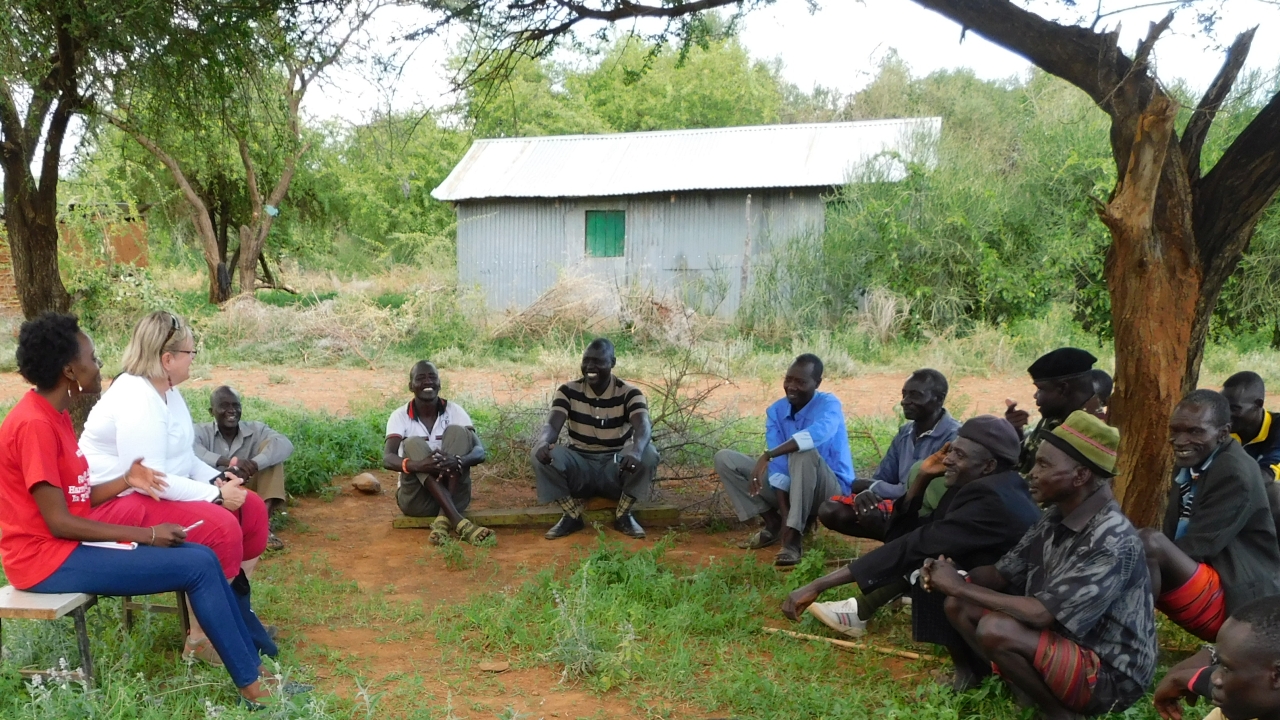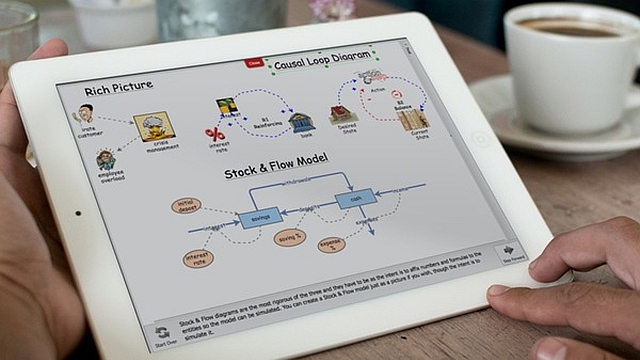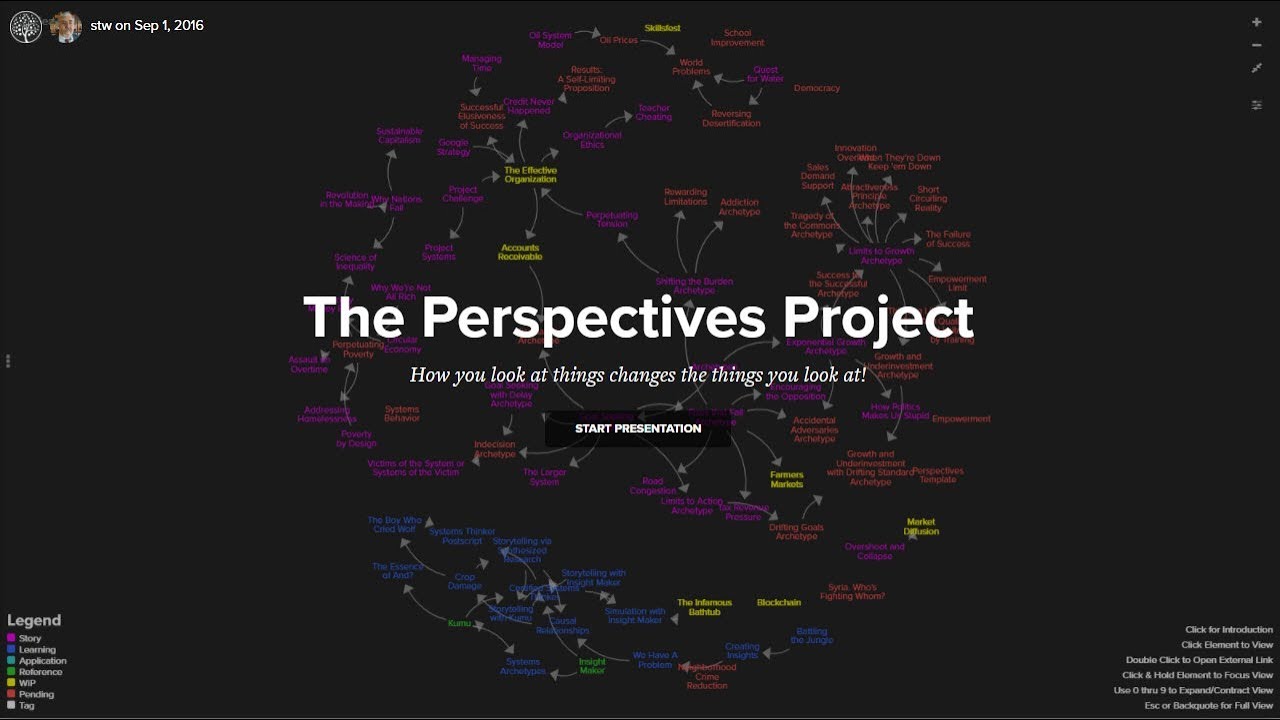
Inclusive Systemic Thinking for transformative change
By Ellen Lewis and Anne Stephens. Originally published on the Integration and Implementation Insights blog.
What is Inclusive Systemic Thinking and how can it be effective in achieving transformational change? How can it contribute to a more inclusive and equitable world?
Introducing Inclusive Systemic Thinking
We have coined the term Inclusive Systemic Thinking to describe an approach that is influenced by a field of systems thinking called ‘Critical Systems Thinking,’ as well as by the social and behavioural sciences, fourth-wave feminism, and more recently, our work in the global development sector. Inclusive Systemic Thinking uses the ‘GEMs’ framework for complex systemic intersectional analysis based on: Gender equality/equity (non-binary), Environments (natural and/or contextual) and Marginalised voices (human and non-human). We described the GEMS framework in a recent i2Insights contribution, A responsible approach to intersectionality.
In our work, Inclusive Systemic Thinking is inclusive because we actively reflect on, advocate, mentor, and adapt our practices through an ethos of engagement that is widespread and that uses non-conventional approaches. We engage with local voices and collectively identify other relevant stakeholders, including non-human voices, as well as people pushed to the margins. In our global development practitioner and academic work, we aim to contribute to the present-day decolonization of knowledge, access, and power. What that means is that we practice two crucial activities:
- critical reflexivity on all our ideas and decisions; and
- in partnership with our country level colleagues, creating a mutual learning environment to design and implement our projects.
These practices get to the heart of a systems thinking truism, ‘we don’t know, what we don’t know’ and to find out at least some of what we don’t know.
Why is Inclusive Systemic Thinking needed for transformative change?
Transformation ideally means the ability to sustain wanted changes in attitudes, behaviours and practices, that can result in lasting societal change to create a world that works for everyone, now and in the future, for human and non-human alike.
This then requires us, in all that we do, to explore the root causes of inequality and ensure that discussions of the conditions needed for lasting social change, at the household, community and institutional levels, are grounded in participant perspectives. This, in turn, requires practices grounded in Inclusive Systemic Thinking.
Diversity here is key: diversity of participants and priorities, diverse settings and contexts, and multiple tools and methods. Research processes must unpack intersecting inequalities, discriminations and vulnerabilities that push some further to the margins than others. This is where the GEMs Framework comes into effect because it does not predetermine what these intersecting factors will be but gives space for them to emerge and arise from dialogue, story- and truth- telling with the people living with the experience.
Genuine decolonising practice
The most prevailing driver of our work is the acknowledgement that the work we do, using Inclusive Systemic Thinking, is an urgent, yet daunting reality, responding to the global polycrises. Polycrises occur when “multiple global systems become entangled in a way that significantly degrades humanity’s prospects” (Lawrence et al., 2022). Put simply, we are motivated to respond to global injustice and wish to do this without reinforcing or creating more of it. As well as prioritising engagement with stakeholders in a way that does not reinforce or risk further discrimination, we reflect and ask whether our work contributes to a desirable, transformational change.
Decolonizing practice is an attempt to challenge Eurocentric practices by prioritising local knowledge and experiences of marginalised population groups.
Inclusive Systemic Thinking provides the mindset needed for a decolonising practice and using the GEMs framework can enable practitioners to seek out and drive transformational change and contribute to an intersectional analysis that is determined by the people and environmental systems, central to the setting in focus.
Mutual capacity development
A key value inherent in Inclusive Systemic Thinking is mutual learning, also known as two-way learning. This is about balancing the power and processes in our relationships. Capacity is not developed by one party or given by another. It is recognition of the systemic nature of learning, of reciprocity, feedback, curiosity, transparency, and enquiry. It is the commitment to reflective behaviour that looks to understand one’s true impact. At the end of the process, it is finding ways to exit that don’t leave others with a bigger mess to clean up than when you entered the scene, or with a financial, strategic, and logistical burden. It is also about a mutual transfer of knowledge.
An emerging practice in our work in Colombia, East Timor and Kenya is to collaboratively develop consulting contracts with local teams which we deliver together. This includes writing in our own redundancy within ten years giving local teams full ownership to lead change in their own country and regions. Simultaneously, those local teams are building country teams that they can mentor and support.
Conclusion
Addressing the polycrises starts by being present, supporting others to participate meaningfully and equitably to bring about the transformative change they wish to see happen, while supporting learning so that our own place in the process is temporary.
Are there ways that Inclusive Systemic Thinking might be used in your work or life? What are the key lessons you take from our example? Do you have lessons to share that could improve our practice?
Reference:
Lawrence, M., Janzwood, S. and Homer-Dixon, T. (2022). What Is a Global Polycrisis? And how is it different from a systemic risk? Version 2.0, Discussion Paper 2022-4, Cascade Institute: Victoria, British Columbia, Canada. (Online – open access). https://cascadeinstitute.org/technical-paper/what-is-a-global-polycrisis/
Biographies:
 |
Ellen Lewis PhD is an organization development consultant and systems thinker, as well as co-founder and co-director of Ethos of Engagement Consulting (EoE). She is based in Portugal. She advises and designs with systems thinking for organisational change, leads EoE’s training and professional development as well as teaching, and conducting research and evaluation projects. |
 |
Anne Stephens PhD is a sociologist, as well as co-founder and co-director of Ethos of Engagement Consulting (EoE). She is based in Australia. She is the Vice President of the Australian Evaluation Society and leads human-rights and gender responsive evaluations, as well as supporting in-country teams. She is a lecturer, writer and researcher and Adjunct of the Cairns Institute at James Cook University in Cairns, Australia. |
Article source: Inclusive Systemic Thinking for transformative change. Republished by permission.
Header image source: © Ethos of Engagement Consulting.



